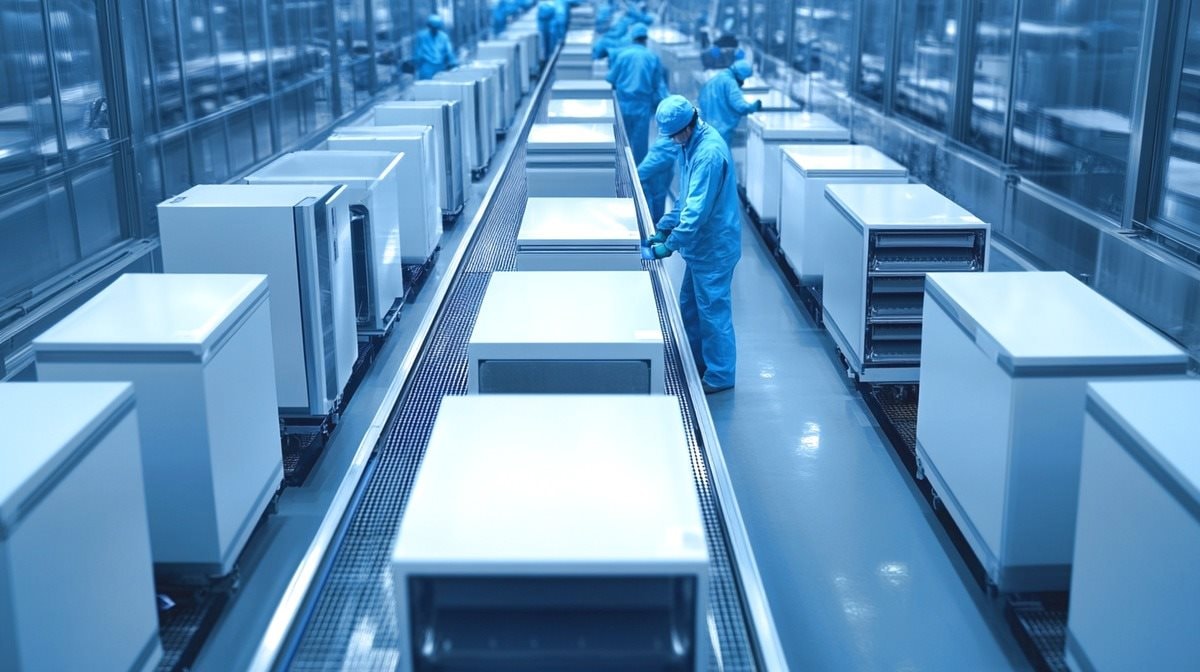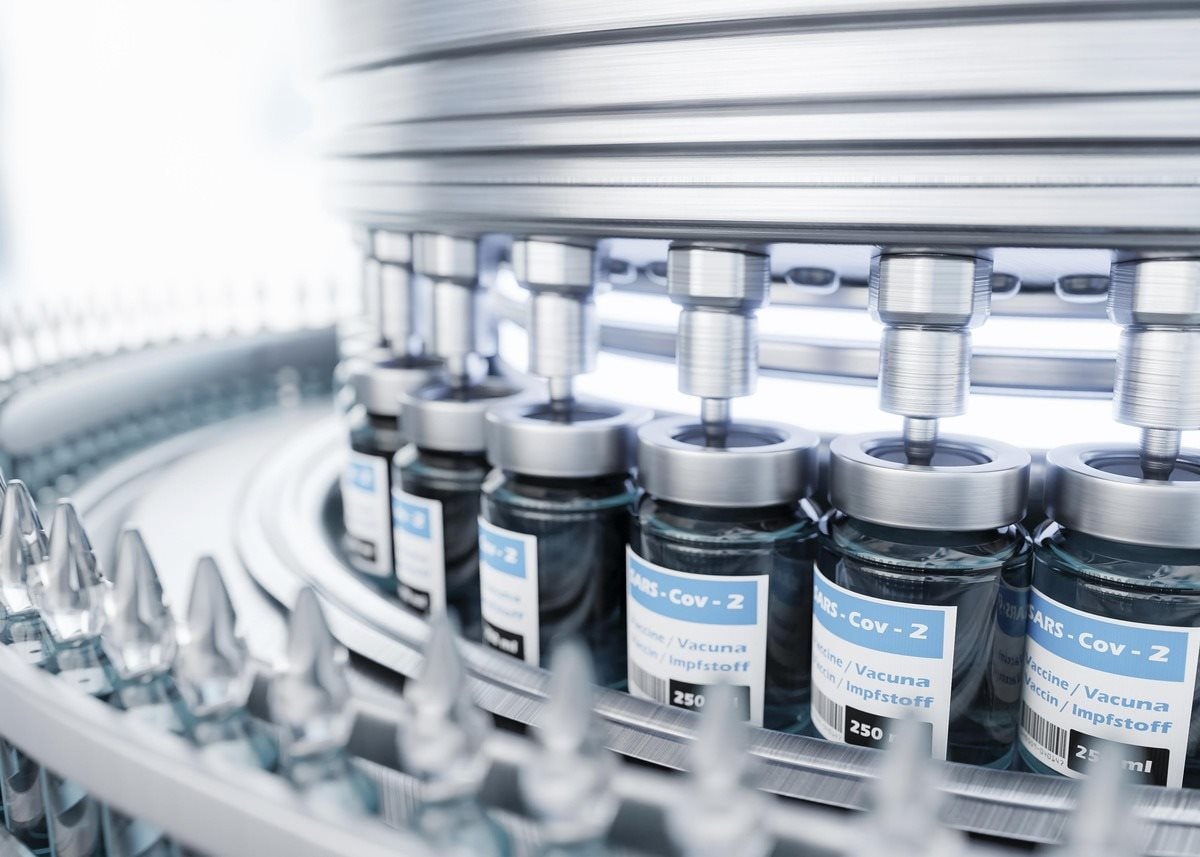Pharmaceutical Cold Chain: Emerging Development Trends
Thời sự - Logistics - Ngày đăng : 16:40, 27/09/2024

Explosive Growth in the Pharmaceutical Cold Chain
The recent IPO of Lineage Logistics has become one of the most noteworthy events in the cold chain sector. As the world’s largest cold storage company, Lineage raised an impressive $4.4 billion, highlighting the vital role cold chain logistics plays in the global economy. Lineage not only serves the food industry but also plays an essential role in the pharmaceutical supply chain, where temperature and transportation timelines are critically important.
A report by RootsAnalysis projects that the pharmaceutical cold chain market will grow from $5.3 billion in 2023 to $9.6 billion by 2035. This rapid growth is driven by the increasing demand for storing and transporting biologics, such as insulin and vaccines, which are highly temperature-sensitive. More than 85% of today’s biological medical products require deep cold storage, often in conditions as cold as liquid nitrogen. The lack of stability during transport can cause these drugs to quickly degrade and lose their effectiveness.
The vulnerability of the cold chain also became more apparent during the COVID-19 pandemic. Issues such as refrigeration system failures, technical errors, or extended exposure to improper temperatures led to significant damage to pharmaceutical shipments. However, this period also showcased the value of advanced technologies. One example is the use of artificial intelligence (AI) to track and adjust shipment routes in real-time, ensuring that Merck’s multimillion-dollar shipment safely arrived at its destination during the pandemic.

Technological Advances in the Cold Chain
Technology plays an increasingly critical role in the development of the cold chain. Systems such as virtual "control towers," utilizing AI and predictive analytics to create a digital twin of a product, enable precise monitoring of the location and condition of shipments throughout the entire transportation process. This allows managers to track temperatures, check whether packages have been opened, and ensure that pharmaceuticals are stored under the correct conditions.
One of the major challenges facing logistics companies is complying with stringent regulations governing the transport of perishable goods, particularly pharmaceuticals. Each geographic region has different requirements for handling and transporting sensitive products, necessitating flexibility and high adaptability from logistics providers.
To tackle these challenges, Internet of Things (IoT) tracking devices such as RFID tags and satellite sensors are increasingly being adopted. These devices provide real-time information on the status and location of shipments, helping to prevent potential problems before they escalate. Smart packaging solutions, such as self-regulating temperature materials, are also gaining popularity, ensuring stable temperatures without requiring external power sources.
New Technologies Shaping the Cold Chain:
- Virtual control towers: Enable real-time tracking of the entire supply chain.
- IoT and RFID technology: Monitor shipment status and location.
- Smart packaging materials: Self-regulate temperature without external power.

Challenges in the Cold Chain
The pharmaceutical industry is under pressure to upgrade cold chain technologies to keep pace with the rapid development of biologic drugs. In the next five years, smart transport solutions, such as digital satellite-connected labels, are expected to become commonplace, enabling global tracking even in remote areas. This will also facilitate the reuse of packaging, a more environmentally friendly and cost-effective solution.
In the future, shipping containers will be equipped with active cooling systems, powered by wireless charging, and AI will continue to improve route prediction and delivery time accuracy. These technologies not only ensure product quality but also minimize environmental impact by optimizing more eco-friendly transportation solutions, such as sea freight.
However, it is undeniable that the cold chain faces significant challenges in terms of management and costs. Technical failures, human errors, or temperature fluctuations can lead to losses amounting to millions of dollars. Therefore, investing in modern technology is not just an option but a vital requirement for companies in the pharmaceutical industry.
A Great Opportunity for Cold Chain Development
The pharmaceutical cold chain not only plays a crucial role in preserving and transporting temperature-sensitive drugs, but it is also the foundation for sustainable growth in the global healthcare industry. Technological advancements are creating significant opportunities for this sector, improving reliability and adaptability in emergency situations such as pandemics.
To achieve lasting success, businesses need thorough preparation and investment in new technologies to optimize their supply chains. Modern solutions, such as virtual control towers, IoT devices, and smart packaging materials, will be the determining factors that help the pharmaceutical industry overcome challenges and seize growth opportunities in the future.

Overall, the boom in cold chain logistics is not just a temporary trend but a necessary shift to ensure continuity and efficiency in the global pharmaceutical transportation system. Technological innovations not only enhance risk management capabilities but also pave the way for sustainable growth in the pharmaceutical industry in the post-pandemic era.
